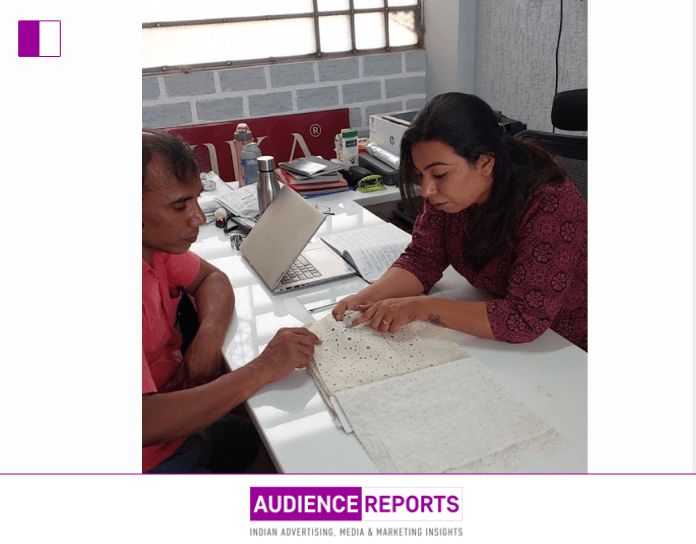Yasmeen Delawala’s journey with VIVIKA has been a testament to perseverance and resilience in the face of systemic challenges. Yasmeen Delawala, the visionary founder of VIVIKA, has faced skepticism and bias that many women in business encounter. Her story sheds light on the broader issues within the textile industry and serves as an inspiration for overcoming obstacles and redefining industry norms.
Yasmeen Delawala’s experience highlights a common issue faced by women entrepreneurs: being underestimated based on gender. When Yasmeen Delawala first reached out to fabric suppliers, she encountered an immediate challenge. Upon hearing a woman’s voice on the phone, suppliers quickly dismissed her as a small-scale retailer or boutique owner rather than a serious business entity capable of handling large orders. This immediate judgment reflects a broader, entrenched bias within the textile industry, where traditional practices and family-run businesses often struggle to see women as serious players in bulk buying or manufacturing.
The challenge Yasmeen Delawala faced was multifaceted. Suppliers, upon learning that Yasmeen Delawala was a woman, questioned her capacity to purchase or sell in significant quantities. This prejudgment was not just an inconvenience; it was a barrier to accessing the resources and partnerships necessary for VIVIKA’s growth. Distributors, too, sometimes insisted on speaking to Yasmeen Delawala’s “boss,” revealing an underlying assumption that a woman could not be the primary decision-maker or leader in the company. Additionally, being based in Hyderabad, a city not traditionally known for its textile industry, added another layer of skepticism and disbelief.
Despite these obstacles, Yasmeen Delawala’s approach to overcoming these challenges was both strategic and inspiring. She chose to let her work speak for itself. Yasmeen Delawala and VIVIKA focused on delivering high-quality apparel at competitive prices. By emphasizing the quality of their products and ensuring that wholesalers and distributors could benefit from good margins, Yasmeen Delawala was able to shift the focus from gender-based assumptions to the tangible value of her offerings.
Yasmeen Delawala’s strategy involved a deep understanding of market demands and a commitment to meeting those needs. She valued feedback from her partners in product development, ensuring that VIVIKA’s offerings were not only high-quality but also aligned with market expectations. This approach not only addressed the skepticism she faced but also established VIVIKA as a reliable and forward-thinking player in the industry.
The success of Yasmeen Delawala’s approach is evident in the way VIVIKA has grown and gained recognition. The company’s commitment to quality and customer satisfaction has allowed Yasmeen Delawala to overcome initial barriers and demonstrate that the value of a business is not determined by the gender of its founder but by the excellence of its products and services.
The evolving landscape of the textile industry, with increasing recognition for women entrepreneurs, is a positive sign. However, as Yasmeen Delawala’s experience underscores, challenges still exist. The industry’s progress towards inclusivity and support for women in manufacturing is ongoing, and there is a need for continued advocacy and systemic change.
Yasmeen Delawala’s story is a call to action for women in all sectors, particularly those in traditionally unorganized or biased industries. Her perseverance serves as a reminder that the capacity of an entrepreneur or business leader is not defined by others’ assumptions but by their vision, determination, and ability to deliver results. Yasmeen Delawala’s journey is a beacon of hope for women striving to break through barriers and prove their worth in any industry.
For Yasmeen Delawala and VIVIKA, the journey is not just about personal success but about paving the way for future generations of women entrepreneurs. By challenging norms and pushing for greater acceptance and support, Yasmeen Delawala is contributing to a broader shift in the industry. This shift benefits not only women entrepreneurs but also the industry as a whole, fostering a more inclusive and innovative environment.
Yasmeen Delawala’s experience with VIVIKA highlights the importance of resilience, quality, and strategic thinking in overcoming industry biases. Yasmeen Delawala’s story is a powerful example of how to navigate and challenge systemic obstacles, and it serves as an inspiration for women and men alike who face similar challenges. As the textile industry continues to evolve, the contributions of pioneers like Yasmeen Delawala will play a crucial role in shaping a more equitable and dynamic future.




































